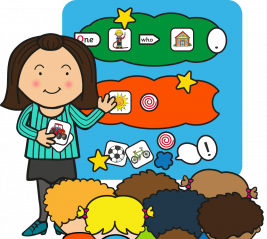Writing with Confidence: Building Self-Assurance in Your KS1 Pupil's Writing Skills
As a primary school literacy teacher, you know that writing is a vital skill for your pupils to develop. However, some children can struggle with self-confidence when it comes to expressing themselves in writing. In this blog post, we’ll explore some techniques and strategies that you can use to help build your KS1 pupils’ self-assurance in their writing skills.
Encourage Brainstorming and Planning
 Starting a piece of writing can be daunting, especially for children who struggle with self-confidence. Encouraging your pupils to spend time brainstorming and planning can be an excellent way to help them feel more confident in their writing abilities. By breaking down the writing process into smaller, more manageable steps, your class will feel more in control of the task at hand.
Starting a piece of writing can be daunting, especially for children who struggle with self-confidence. Encouraging your pupils to spend time brainstorming and planning can be an excellent way to help them feel more confident in their writing abilities. By breaking down the writing process into smaller, more manageable steps, your class will feel more in control of the task at hand.
Start by having your pupils brainstorm ideas by creating lists, mind maps, or other visual aids. Once they have a few ideas, have them create an outline or plan for their writing. This can help them to organise their thoughts and ensure that their writing has a clear structure. By taking the time to plan, your pupils will feel more prepared and confident when it comes time to start writing.
Provide Positive Feedback
Positive feedback can be a powerful tool for building self-confidence in writing. When your pupils receive praise for their writing, they are more likely to feel good about their abilities and be motivated to continue improving. 
Be specific in your feedback, highlighting areas where your pupils have done well. For example, you might praise the use of descriptive language, a well-crafted opening paragraph, or a strong conclusion. By giving targeted feedback, your pupils will know exactly what they are doing well and be more likely to continue to build on their strengths.
Model Good Writing
 Modelling good writing can be an effective way to help your pupils feel more confident in their own writing skills. Take the time to share examples of well-written pieces, whether it’s a published book, a piece of pupil work from a previous year, or a sample piece that you have written yourself.
Modelling good writing can be an effective way to help your pupils feel more confident in their own writing skills. Take the time to share examples of well-written pieces, whether it’s a published book, a piece of pupil work from a previous year, or a sample piece that you have written yourself.
As you share these examples, take the time to highlight what makes the writing effective. This might include pointing out strong word choices, well-developed characters, or a clear narrative structure. By providing your pupils with concrete examples of good writing, they will have a better understanding of what they are striving to achieve in their own work.
Encourage Peer Review
 Peer review can be a valuable tool for building self-confidence in writing. By giving your pupils the opportunity to share their work with their peers and receive feedback, they can develop a sense of community and support around their writing.
Peer review can be a valuable tool for building self-confidence in writing. By giving your pupils the opportunity to share their work with their peers and receive feedback, they can develop a sense of community and support around their writing.
Encourage your pupils to discuss their writing with one another, either in small groups or one-on-one. Provide them with a list of questions or prompts that they can use to guide their conversations, such as “What do you like about this piece?” or “What do you think could be improved?” By engaging in this type of feedback, your pupils will feel more connected to their peers and more confident in their writing abilities.
Celebrate Achievements
 Finally, celebrate your pupils’ achievements! Whether it’s by displaying their work in the classroom, sharing it with parents and guardians, or recognising their progress in another way, celebrating their successes can be a powerful motivator for continued growth and development.
Finally, celebrate your pupils’ achievements! Whether it’s by displaying their work in the classroom, sharing it with parents and guardians, or recognising their progress in another way, celebrating their successes can be a powerful motivator for continued growth and development.
Take the time to recognise your pupils’ hard work and progress and make a point to celebrate their achievements throughout the year. By doing so, you will help to build their self-confidence and encourage them to continue to develop their writing skills.
Conclusion
Building self-confidence in writing is an important task for primary school literacy teachers. By encouraging brainstorming and planning, providing positive feedback, modelling good writing, encouraging peer review, and celebrating achievements, you can help your KS1 pupils to develop a stronger sense of self-assurance in their writing skills. With your guidance and support, your pupils can become more confident and skilled writers.
Related Blogs:
How to Teach a Struggling Child to Write
5 Things Which Motivate Children to Write
Using Mighty Writer for Creative Writing
Looking to build your children's confidence in writing and rewriting?
Mighty Writer is the perfect tool!
This innovative resource is designed to make writing fun and engaging for young learners, while also developing their core literacy skills. With Mighty Writer, your pupils will love writing and you'll love the results!
Ready to learn more? Download our free teachers' guide resource! Click below to download!

